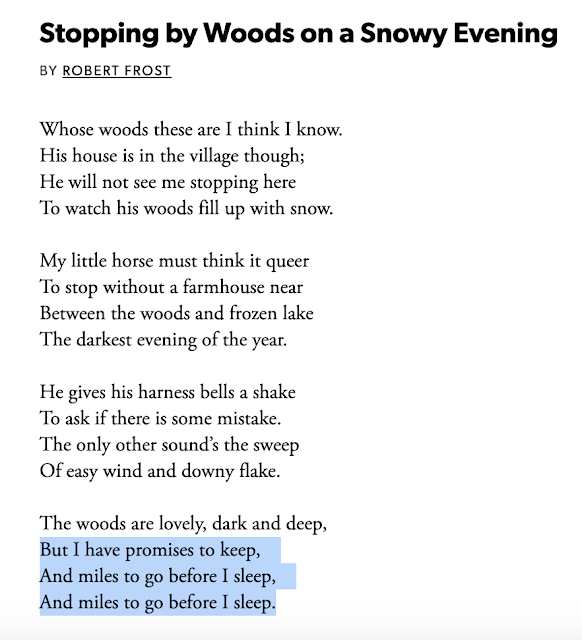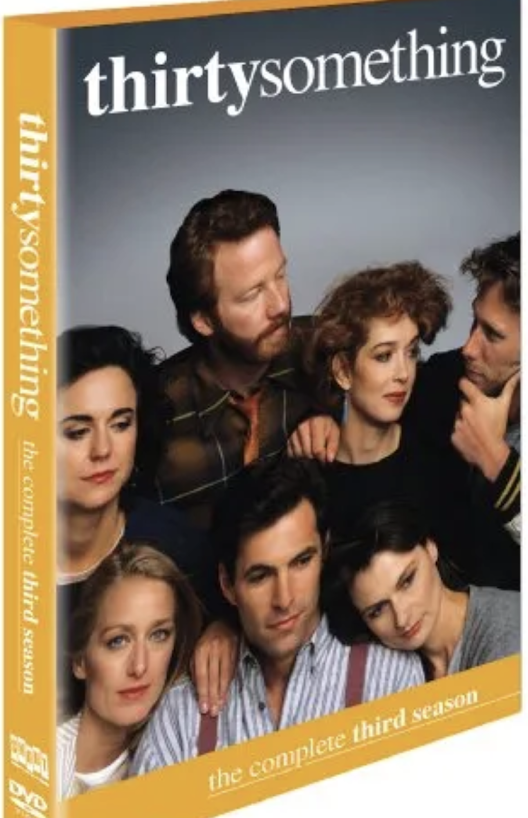Each time I was at Ogilvy, I was there from 1999 to 2004 and then from 2014 to 2020, the place was special.
Most agencies are fairly teeming with talent and ambition. But few have the assignments that measure up to the standard of the people. But Ogilvy, for at least 75-percent of my 12 years there, wasn't playing a Zero Sum game. There was enough goodness to go around and you didn't need to stab people in the back to get it. You could stab them in the front.
Along the way, as an old person (and I was old--by WPP standards--both times I was there) you meet a lot of young people. Some of them stand-out and make you notice them. They're funny. Or they're in early. Or always have their hands up looking to help. Or they're there in your in-box wanting to talk to an old guy (you know you're old when people start calling you a legend) about the craft of the business.
Zach Buckner was one of those people. I heard a story about when a 19-year-old Barbra Steisand was on Broadway as Miss Marmelstein in "I Can Get it for you Wholesale," people just knew.
Out of the blue, Zach sent me a note the other day. One of the best things about being an old person is when young people write to you.
Zach had just watched the 1980s TV show "Thirtysomething" for the first time and wrote an essay on it. He thought it would be good for Ad Aged. He sent it to me, and I agreed. Along with Zach's bio, his piece is below.
You should get to know Zach.
Zach's Bio.
My career in advertising started like so many
before me: Deciding between a copywriting internship at Ogilvy or working at a
campground in Big Sur.
After realizing the campground was thirty miles from the
nearest Chinese takeout spot, I delayed my return to nature for a sprint into
advertising. My first accounts were working on NASCAR and Citizens Bank. On my
first day, I learned people actually watch and care about NASCAR. On my fourth
day, I was forcing my family to turn off an old Columbo episode for the battle
at Talladega. They still haven’t forgiven me.
I worked at Ogilvy for the next
six years, and in that time worked with mentors and friends who took the time
to teach me the secrets of advertising. My favorite secret? Always sit on an
email for at least the amount of time it’d take to eat a sandwich before
sending.
After Ogilvy, I worked at Pereira O’Dell. I went from working in an
11-story building in Hell’s Kitchen to a one-floor shop with gorgeous
chandeliers in SoHo. I loved it. Everything happened fast and you had to wear
more hats than Jackie O.
I’m back at Ogilvy now and trying to take with me all
the wise words my old mentors left me with. Always find the other Jews in the
room. Always know the ins-and-outs of your coworkers jobs as if it’s your job
too. Always find the free food in the building. Check, check, check.
--
Zach's Post.
A
Thirtysomething Watches ‘Thirtysomething’
Thirtysomething Years Later
By Zach
Buckner
When we have kids, do you want to have a bris," Rachel, my girlfriend, asked me.
Why
can’t they just do it at the hospital?”
“You
trust a doctor over a mohel? Gotta have a mohel,” I said.
“Where
do you even find a mohel?”
“I can
find us a mohel by tomorrow afternoon. We’re in Brooklyn. We can get mohels my
ancestors only dreamed of,” I said.
A pause.
“Would
you want to raise your kids Jewish?” Rachel asked.
“Let’s
see what Michael and Hope do,” I non-answered.
Like so
many episodes before this, ‘Thirtysomething’ and all its chaotic, Boomer bliss
was wedging itself directly in the middle of my relationship. Here I was,
thinking we were going to passively watch a forgotten 80s classic, and instead
it’s become a launching pad for the soul-deepening, relationship-defining
conversations Rachel and I have been circling around for years.
Is it
possible to continue growing alone as you deepen your relationship? Eliot isn’t
so sure. Is marriage just slow asphyxiation for women as they juggle between
what they want and what’s expected of them? Hope would like to have a word. Can
backwards suspenders be a look? Melissa says yes.
A little
background for the uninitiated. ‘Thirtysomething’ was a slice-of-life drama
that aired on ABC. It debuted on September 29, 1987, and focused on seven
thirtysomething friends as they tackle life and all its joys, uncertainties,
and mundanity. There’s married couple, Michael and Hope, the linchpins of the
show. Michael, Jewish, self-righteous, and reserved; Hope, a social worker
turned stay-at-home mom with eyes and judgments that pierce through hearts and
pantsuits. There’s Elliot, Michael’s advertising partner, with a goofy kid-like
sensibility who acts first and regrets later; Nancy, Elliot’s wife, a
pushed-aside, suffering artist. Ellyn, Hope’s romantic, ambitious best friend
who works for City Hall. Melissa, a quick-witted, aspiring photographer,
fashion sage, and Michael’s cousin. And then Gary, golden Bjorn Borg locks,
equal parts charm and flakiness, English professor, and Michael’s best friend.
Over four seasons, creators Ed Zwick and Marshall Herskovitz throw our cast
into a gauntlet of loss, love, grief, sickness, infidelity, casual sex, serious
flings, and conversations centered on gender roles, gay rights, AIDS, hippy
idealization, and yuppie conformity.
I was
110 days old when the season finale of ‘Thirtysomething’ aired on Tuesday, May
28, 1991. My biggest needs revolving around apple juice, naps, and my mom – who
at 10 P.M. on that Tuesday night would be ignoring my juice-induced cries to
see how her favorite thirtysomething Philadelphians faced their future. And
now, 32 years and 4 months later, I’m cranking up my DVD/Blu-Ray player,
skipping through ads for other forgotten 80s TV shows, and saying goodbye to my
Boomer friends.
Watching
‘Thirtysomething’ is like a trip to the past. Literally. It’s not available on
streaming services, so the only way to watch it is by buying or renting the
DVDs. Unsure if I wanted another bulky DVD set to collect dust on my shelves, I
rented the first season from my local library. I’m pretty sure I put the first
ever hold on ‘Thirtysomething’ in the history of my library’s existence.
I didn’t
expect ‘Thirtysomething’ to crash into my life and become a focal point for my
conversations with coworkers, friends, family members, strangers, barbers,
bartenders, and, most importantly, a tool to strengthen my own relationship
with Rachel.
How is
it a show by Boomers starring Boomers for Boomers would help us realize we’re
ready for marriage and all mysteries that come with it? It’s ‘The Big Chill’
extended into four seasons, I thought. Not a mirror showing us our past,
present, and future.
Let’s
start with the basics. Like Michael and Hope, I’m Jewish and Rachel isn’t. She
was raised Evangelical turned Episcopal, while I grew up Reform Jewish complete
with a Bar Mitzvah and countless Rodney Dangerfield jokes ready to be fired off
on command. Faith, religion, and how to balance the two have been recurring
conversations of ours well before we started ‘Thirtysomething.’
What did
being a Jew mean for Michael in 1987? A lot like what it means for me in 2023.
A struggle to define, a blanket always nearby.
And
what’s it mean to be with someone who isn’t Jewish? Does getting a Christmas
tree make me a traitor? When I told my mom we were getting a tree, she
responded with, “WHAT!?” It could’ve shattered mountains and split babkas. She
followed with her trademark Brooklyn, Jewish escalation: “You’re not
converting, are you?” I can’t help but wonder how she reacted to Hope and
Michael having the same conundrum thirty years earlier. After Michael’s initial
dismissal, he comes back with a tree and Hope surprises him with a menorah.
I know
this doesn’t seem like major stuff, but like all of ‘Thirtysomething’ the
action is an acceptance. After my own mini freak-out over our tree, Rachel and
I shopped for a menorah. It lights up the corner of the room the tree doesn’t
reach. Because ‘Thirtysomething’ isn’t about overtaking or overpowering.
Whenever characters try it, they regret it. It’s about doing our best to hold
everything at once. The endless push-pull to understand each other, toe the
always moving line.
Watching
‘Thirtysomething’ makes me emotional and scared. It came to me like a secret
passed between generations. A forgotten relic mentioned in passing by parents,
aunts, and since laid-off older coworkers. I’m terrified of getting older. At
32, I already feel aged out of my industry. I regale younger coworkers with
stories of advertising campaigns devoid of TikTok ideas like a Town Crier
traveling through a square. Layoffs are a given. They swirl through like a
hurricane that devastates every six months. I’ve seen talented writers and
designers in their fifties and sixties laid-off via Zoom, Teams, and text.
People with so much more to give, so much more to teach.
‘Thirtysomething’
is absolutely of its time. There’s big hair and bigger shoulder pads. Reagan
undertones and failed hippie overtones. Everyone can own property, have
families, and not worry about foreclosing on their homes. And yet, in each
episode truths from the comically small to the brutally big emerge – from
finding first babysitters to second look cancer screenings. There’s still so
much to learn from it.
I don’t
want ‘Thirtysomething’ to wash away into the Content Sea. Every few years, a
retrospective piece like this pops up but then the old makes way for the new.
It’s shaped and strengthened my own relationship. And once people get past the
suspenders, colorful ties, and puffy hair, it could help them too. Or it could
annoy them to no end. Both responses were the norm for the initial run of the show
and are valid now depending on who’s watching.
Rachel
and I haven’t figured it all out. We still don’t have a definitive answer for
how we’ll raise any future kids. Maybe they’ll get a Bar or Bat Mitzvah. Maybe
they won’t. We’re still working on balancing our own individuality within our
deepening relationship. If we’re ever struggling with work, sex, kids, friends,
parents, religion, I know the perfect septet of thirtysomethings to help us get
there.



















